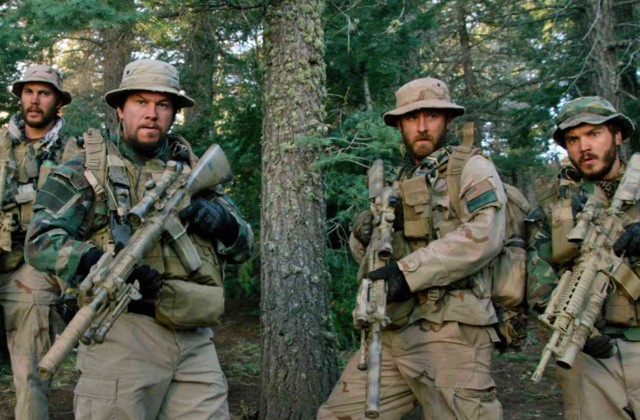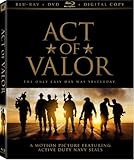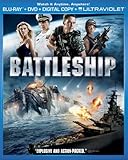Lone Survivor is the new benchmark for military filmmaking

‘Lone Survivor’ masterfully tells the harrowing story of Operation Red Wings, a 2005 special operation that cost the lives of 19 US servicemen, and saw only one survivor.
I had a conversation with a friend recently about whether or not films like Lone Survivor are Hollywood making money off of the sacrifices that our men and women in the military make. Putting aside for the moment that Lone Survivor is based on the book that Petty Officer Marcus Luttrell co-wrote, I think there’s something important about these types of films getting made. The medium of storytelling – and thus historytelling – is changing. And while I certainly don’t want kids 50 years from now watching historical films from today and taking their accounts as gospel, seeing the reaction to Saving Mr. Banks proves that some people will believe everything they see.
So making a movie, and importantly telling the story, of Luttrell, Lieutenant Micheal Murphy, Petty Officers Danny Dietz and Matthew Axelson and all of the men of Operation Red Wings that gave their lives an endeavor worth taking. Watching Lone Survivor is hard, but it is the kind of film people need to see to understand what it means to wear a uniform. That might be a little too “America, Rah Rah!” for some folks, but that is the sense that you are left with after watching Lone Survivor. The film was relatively politically agnostic; ignoring moralizing and focusing on accuracy – as much as any storytelling can be at least.
The idea that director Peter Berg was the same guy who directed Battleship was something running through my mind throughout the screening (Apparently Battleship was the trade Berg made to get Universal to back Lone Survivor). I didn’t hate Battleship nearly as much as every other critic on the planet, but you’re not likely to find two more different moving-going experiences. Lone Survivor is much more comparable to Berg’s work on Friday Night Lights (both the film and the show) and mostly The Kingdom. Most folks will reference the first half hour of Saving Private Ryan in their reviews – and that is an apt reference – but the action sequences here most reminded me of “those” 30 minutes in The Kingdom.
Mark Wahlberg and Emile Hirsch both do solid work as Luttrell and Dietz, but it was really Taylor Kitsch’s and Ben Foster’s performances that stood out for me. Despite my opinions on Battleship, I choose to prefer remembering the work Kitsch did as Tim Riggins on FNL. There’s a lot of Riggins in his portrayal of Murphy (though, to be honest, there’s a lot of Riggins in every Kitsch performance), but it works here. The ease and comfort level that these men had together was believable, and something that was incredibly important to the story. Most of that flowed through Murphy as the field commander, and thus Kitsch here. Foster’s turn as Axelson was also inspired work; more than any of the other “characters,” I wanted to know more about “Ax” and what made him tick. There was a humanity in a very cold choice, and in a lessor actor, it would have come across as something akin to villainy.
Despite a group of incredible performances, truly the most impressive things about Lone Survivor are technical. It’s rare that I walk out of a film raving about the sound design; for the most part I think that when it is done right, you barely notice it. But there were sequences (and you’ll know the ones I’m talking about) that the sound work was more important to portraying the impact of what was on the screen than the visuals were – not to say that the stunt work wasn’t equally amazing. Makeup work is another area I don’t focus on, but the work here also stood out; though the story that Berg had access to official autopsy reports is a little too creepy for my tastes.
While I thought I knew most of the story of Operation Red Wings (I never did finish Luttrell’s book), I wasn’t aware of how he was eventually rescued. Luttrell was saved and later protected – at great personal risk – by the people of the village near where the gun battle took place. Portraying those actions correctly was something that was important to Luttrell, who approved of the similar themes in The Kingdom when he agreed to work with Berg.
Lone Survivor is a difficult film to watch; not at all for the faint of heart. It doesn’t lie to you about where it is going; if you don’t know the story in advance, it is fairly apparent how it is going to end. In a no-win scenario, watching these men continue to persevere is more than a little awe-inspiring. Peter Berg has almost solidified himself as the master of the military thriller – as long as you kinda forget about Battleship, eh?
 CliqueClack
CliqueClack



